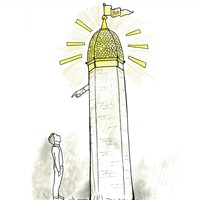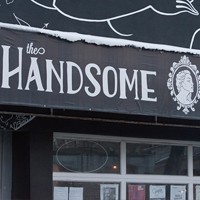Megan Linton
-

Get well soon
Wellness seems to pour from every crevasse of the marketing world currently, from chain health food stores, crystal companies, gyms and weight-loss programs to yoga studios, greeting cards and mental health campaigns.
-

It’s not our main concern
This year’s ballot question of opening Portage and Main to pedestrians has been championed as the chief accessibility issue for Winnipeg citizens across the city.
-

My anger is my love letter
Being part of social movements seems inherent when your body vehemently resists mainstream society.
-

Excuse my trust issues
Despite continued efforts for the University of Winnipeg to diversify, the representation of faculty with disabilities remains incredibly low at the University of Winnipeg
-

Summertime Sadness
While summer is, for many students, a time to save up for an eighth of a year's tuition (or five months rent) through the Federal Student Workers Program or Manitoba's Green Team program, for students with disabilities those living with mental illness and neurodivergent students, it is also a time of financial exclusion.
-

Bodies as burdens
Society has labelled persons with disabilities and neurodivergent people as burdens for the past several centuries.
-

Mental Health is not wealth
Starting in 2010, Bell Let’s Talk has begun a $100-million campaign centred around breaking down the stigmas surrounding mental health. Further, jack.org, a campus-centred organization also began in 2010, with the goal of increasing awareness of mental health and mental illness
-

Accessibility is more than a buzzword
The current buzzword vibrating across the music scene is the term accessible. It’s mentioned in Facebook events for shows, on venue pages and used haphazardly across the industry.
-

Your cool professor probably sucks
Ableism within university institutions is consistently permitted, accepted and encouraged, and the University of Winnipeg (U of W) is no exception.
-

CanLit authors must put victims first
Through November and December, 93 members of the CanLit elite signed a letter shaming the University of British Columbia (UBC) for their lack of due process in regards to the treatment of the Steven Galloway case.
-

We Need To Talk
It’s easy to avoid conversations about sexual assault, and Canadian institutions have been fairly successful in doing just that. Sexual assault is a rampant issue across post-secondary institutions in North America. It doesn’t just happen at large American colleges, despite Canadian post-secondary institutional rhetoric.

